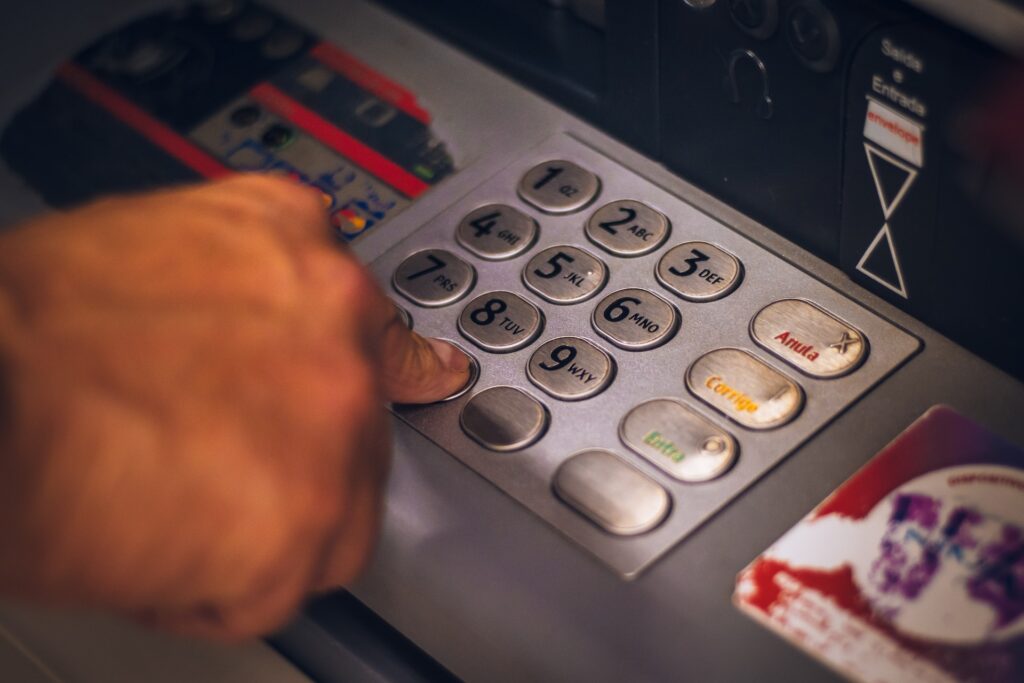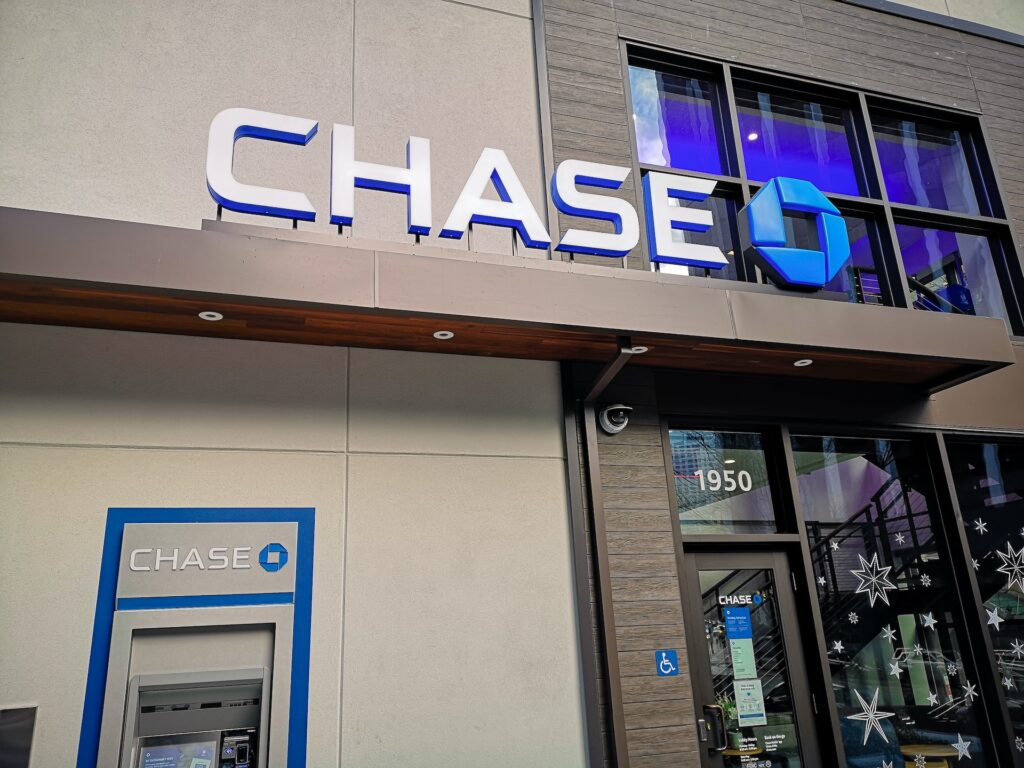Chase and Capital One are two of the most popular banks in the United States, offering a wide range of financial products and services. Both banks offer credit cards with competitive rewards programs, as well as various banking services, such as checking and savings accounts, loans, and investment options. However, there are some key differences between the two banks that consumers should consider when choosing which one to do business with.
Chase is a well-established bank with a long history of providing quality financial services to its customers. It offers a wide range of credit cards with generous rewards programs, including cash back, travel rewards, and points-based rewards. Chase also offers a variety of banking services, including checking and savings accounts, loans, and investment options. However, its fees can be higher than some of its competitors, so consumers should carefully review their options before choosing a Chase credit card or banking product.
Capital One is a newer bank that has quickly gained popularity for its innovative credit card rewards programs and competitive fees. It offers a variety of credit cards with generous rewards programs, including cash back, travel rewards, and points-based rewards. Capital One also offers a range of banking services, including checking and savings accounts, loans, and investment options. However, its customer service can be hit or miss, so consumers should be prepared to do their own research and make informed decisions when choosing a Capital One credit card or banking product.
Key Takeaways
- Chase and Capital One are two popular banks in the United States that offer credit cards and banking services.
- Chase offers a wide range of credit cards and banking services, but its fees can be higher than some competitors.
- Capital One offers innovative credit card rewards programs and competitive fees, but its customer service can be hit or miss.
Chase Vs Capital One: An Overview
When it comes to choosing a financial institution, two of the most popular options are Chase and Capital One. Both banks offer a wide range of products and services, including checking and savings accounts, credit cards, and loans. However, there are some key differences between the two that may influence your decision.
One of the biggest differences between Chase and Capital One is their size. Chase is a much larger institution, with over 4,700 branches and 16,000 ATMs across the United States. Capital One, on the other hand, has around 500 branches and 2,000 ATMs. This may be an important factor for those who prefer the convenience of having a physical branch nearby.
Another difference between the two banks is their approach to fees. While both charge fees for certain services, such as overdrafts and out-of-network ATM usage, Capital One tends to have lower fees overall. Chase, on the other hand, has higher fees but offers more ways to waive them, such as by maintaining a certain minimum balance.
When it comes to credit cards, both Chase and Capital One offer a variety of options with different rewards programs and benefits. However, Chase is known for its popular Ultimate Rewards program, which allows cardholders to earn points that can be redeemed for travel, cash back, or other rewards. Capital One’s rewards program, called Venture, is also popular but may not offer as much value for some consumers.
Overall, choosing between Chase and Capital One will depend on your individual needs and preferences. If you value having a physical branch nearby and are willing to pay higher fees for more services, Chase may be the better option. If you prefer lower fees and a more straightforward rewards program, Capital One may be the way to go.
Credit Card Comparison
When it comes to choosing a credit card, it’s important to compare your options to find the best fit for your needs. In this section, we’ll compare Chase and Capital One credit cards across a range of features, rewards, fees, and more.
Features Comparison
Both Chase and Capital One offer a variety of credit cards with different features, so it’s important to consider what you’re looking for in a card. Chase offers several popular cards, including the Chase Sapphire Preferred Card, Chase Freedom Flex, and Chase Sapphire Reserve. Capital One’s flagship card is the Capital One Venture Rewards Credit Card, but they also offer the Quicksilver and Savor cards.
Rewards and Perks
Rewards programs are a key consideration when choosing a credit card. Chase offers the Ultimate Rewards program, which allows you to earn points that can be redeemed for travel, cash back, and more. Capital One’s rewards program is called Venture Rewards, which offers miles that can be redeemed for travel purchases.
Both Chase and Capital One offer sign-up bonuses, bonus points, and other perks for cardholders. For example, the Chase Sapphire Preferred Card offers 100,000 bonus points after you spend $4,000 in the first three months, while the Capital One Venture Rewards Credit Card offers 60,000 bonus miles after you spend $3,000 in the first three months.
Fees and Rates
Fees and rates can vary widely between credit cards, so it’s important to compare these factors as well. Both Chase and Capital One offer cards with no foreign transaction fees, which can be a big benefit for frequent travelers. However, some cards do have annual fees, which can range from $0 to $550.
Interest rates can also vary between cards, so it’s important to check the APR before applying. Some cards offer introductory 0% APR periods, while others have higher ongoing rates.
Sign-Up Bonuses
Sign-up bonuses can be a big incentive to apply for a new credit card. Both Chase and Capital One offer generous bonuses for new cardholders. The Chase Sapphire Preferred Card currently offers 100,000 bonus points after you spend $4,000 in the first three months, while the Capital One Venture Rewards Credit Card offers 60,000 bonus miles after you spend $3,000 in the first three months.
Travel Benefits
Travel benefits can be a big draw for credit card users. Chase offers a range of travel benefits, including access to airport lounges, trip cancellation insurance, and rental car insurance. Capital One also offers travel benefits, including travel accident insurance and 24-hour travel assistance services.
Both Chase and Capital One offer cards that earn rewards on travel purchases, making them a good choice for frequent travelers.
Customer Service
Customer service can be an important consideration when choosing a credit card. Both Chase and Capital One offer customer service via phone, email, and social media. Chase has a reputation for good customer service, while Capital One has been recognized for its user-friendly mobile app.
Comparison of Specific Cards
Here’s a quick comparison of some popular Chase and Capital One cards:
| Card | Rewards Program | Annual Fee | Sign-Up Bonus |
|---|---|---|---|
| Chase Sapphire Preferred Card | Ultimate Rewards | $95 | 100,000 points |
| Capital One Venture Rewards Credit Card | Venture Rewards | $95 | 60,000 miles |
| Chase Freedom Flex | Ultimate Rewards | $0 | $200 cash back |
| Chase Sapphire Reserve | Ultimate Rewards | $550 | 60,000 points |
| Chase Freedom Unlimited | Ultimate Rewards | $0 | $200 cash back |
| Quicksilver | Cash back | $0 | $200 cash back |
| Savor | Cash back | $0 | $300 cash back |
Other Features
In addition to the features listed above, some cards offer additional benefits that may be of interest. For example, the Chase Sapphire Preferred Card offers 2x points on dining and travel, while the Capital One Venture Rewards Credit Card offers a credit for Global Entry or TSA PreCheck.
When comparing credit cards, it’s important to consider all of these factors to find the best card for your needs.
Banking Services Comparison
When it comes to banking services, Chase and Capital One offer a range of options to meet the needs of their customers. Here is a comparison of some of the key features of their savings and checking accounts, interest rates and APY, fees and withdrawals, branches and ATMs, online and mobile banking, and other services.
Savings Accounts
Both Chase and Capital One offer savings accounts with competitive interest rates and APY. Chase offers two types of savings accounts: Chase Savings and Chase Premier Savings, while Capital One offers the 360 Performance Savings account. All three accounts offer a variety of features, including savings goals and automatic transfers to help customers save more.
Checking Accounts
Chase and Capital One also offer checking accounts with a range of features and benefits. Chase offers several different types of checking accounts, including the Chase Total Checking, Chase Premier Plus Checking, and Chase Sapphire Checking. Capital One offers the 360 Checking account. Both banks offer debit cards with their checking accounts, as well as access to mobile banking and online bill pay.
Interest Rates and APY
When it comes to interest rates and APY, both Chase and Capital One offer competitive rates for their savings accounts. Chase’s savings accounts offer a variable interest rate, while Capital One’s 360 Performance Savings account offers a tiered interest rate based on the account balance. Both banks also offer CDs and money market accounts with competitive rates.
Fees and Withdrawals
Chase and Capital One have different fee structures for their savings and checking accounts. Chase charges a monthly maintenance fee for their checking accounts, although customers can avoid the fee by meeting certain requirements. Capital One does not charge a monthly maintenance fee for their 360 Checking account. Both banks offer fee-free withdrawals at their own ATMs, and customers can also use out-of-network ATMs for a fee.
Branches and ATMs
Chase has a larger network of branches and ATMs than Capital One, with over 4,700 branches and 16,000 ATMs across the country. Capital One has a smaller network of branches and ATMs, with around 500 branches and 39,000 fee-free ATMs nationwide. However, Capital One offers a unique feature with its Cafés, which are physical locations where customers can meet with financial advisors and attend events.
Online and Mobile Banking
Both Chase and Capital One offer robust online and mobile banking options, with features like mobile check deposit, bill pay, and account alerts. Chase’s mobile app also offers access to Chase Private Client, a premium banking service for high-net-worth individuals. Capital One’s mobile app includes features like Purchase Eraser, which allows customers to redeem rewards for past purchases.
Other Services
In addition to savings and checking accounts, both Chase and Capital One offer a range of other services. Chase offers IRAs, certificates of deposit, and transfer partners for its rewards program. Capital One offers a range of credit cards, auto loans, and home loans, as well as investment services through Capital One Investing.
Overall, both Chase and Capital One offer a range of banking services to meet the needs of their customers. While Chase has a larger network of branches and ATMs, Capital One offers unique features like its Cafés and Purchase Eraser rewards program. Customers should consider their individual needs and preferences when choosing between these two banks.
Conclusion
In conclusion, both Chase and Capital One offer competitive credit card options with their own unique value propositions. When it comes to value, both issuers offer a variety of rewards programs, sign-up bonuses, and other perks to attract new customers. However, the terms and conditions of each issuer’s credit cards vary, so it’s important to carefully compare them before making a decision.
In terms of comparison, Chase offers a wider range of credit cards with more diverse rewards programs, while Capital One’s rewards program is more straightforward and easier to understand. Additionally, Chase’s credit cards typically have higher credit limits and more favorable interest rates, making them a better option for those with excellent credit.
When it comes to balance transfers, both issuers offer options for transferring high-interest balances to a lower rate card. However, Chase’s balance transfer fees are often higher than Capital One’s, so it’s important to compare these fees before making a decision.
Overall, both Chase and Capital One have their own strengths and weaknesses, and the best option will depend on the individual’s needs and preferences. It’s important to carefully compare the terms and conditions of each issuer’s credit cards before making a decision.
Frequently Asked Questions
Which bank offers better credit cards: Chase or Capital One?
Both Chase and Capital One offer a variety of credit cards with different rewards and benefits. The best option depends on the individual’s spending habits and preferences. Chase offers premium travel credit cards such as the Sapphire Reserve and Sapphire Preferred, while Capital One offers cashback credit cards like the Quicksilver and Venture cards.
Which bank has the best joint account options for couples: Chase or Capital One?
Both banks offer joint account options for couples. Chase offers the Chase Total Checking account, while Capital One offers the 360 Checking account. The best option depends on the couple’s needs and preferences.
What are the differences between Chase and Capital One savings accounts?
Chase offers the Chase Savings account, which has a low interest rate and requires a minimum balance to avoid monthly fees. Capital One offers the 360 Savings account, which has a higher interest rate and no monthly fees. The best option depends on the individual’s savings goals and habits.
Which bank offers better business checking accounts: Chase or Capital One?
Both banks offer business checking accounts with different features and benefits. Chase offers the Chase Total Business Checking account, while Capital One offers the Spark Business Checking account. The best option depends on the business’s needs and preferences.
Which bank has better rewards programs: Chase or Capital One?
Both banks offer rewards programs for their credit cards. Chase offers the Ultimate Rewards program, which allows users to earn points for travel, cashback, and more. Capital One offers the Venture Rewards program, which allows users to earn miles for travel. The best option depends on the individual’s preferences and spending habits.
What are the pros and cons of Chase and Capital One travel cards according to Reddit users?
According to Reddit users, the pros of Chase travel cards include a variety of travel benefits, such as airport lounge access and travel insurance. The cons include high annual fees and strict application requirements. The pros of Capital One travel cards include no foreign transaction fees and flexible redemption options. The cons include lower rewards rates compared to other travel cards.




